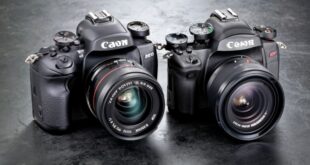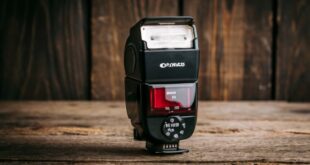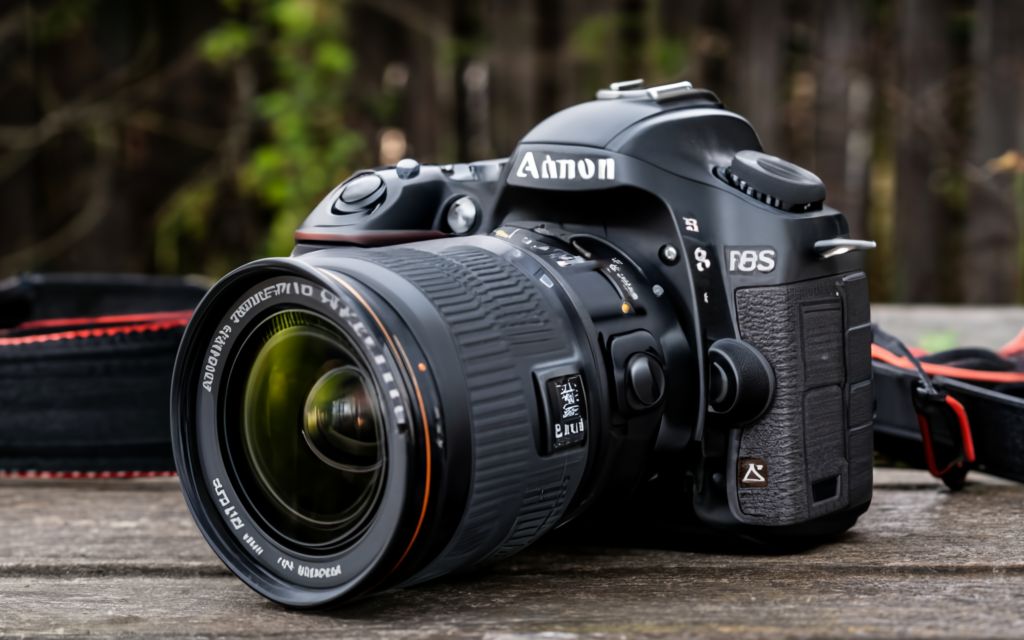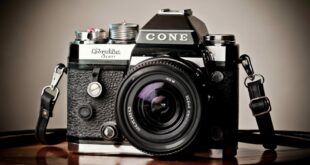Introduction
Hello guys! Today, we are going to explore the world of DSLR cameras and unveil the best options specifically designed for self-tapes. Whether you are an aspiring actor, a YouTuber, or simply someone who loves capturing moments, having a high-quality camera is of utmost importance. In this article, we will guide you through the top 7 DSLR cameras that excel in self-tape recording, allowing you to showcase your talent or create stunning videos with ease.
Without further ado, let’s dive into the world of DSLR cameras for self-tapes and discover which one suits your needs and budget perfectly!
1. Canon EOS 5D Mark IV 📷
The Canon EOS 5D Mark IV is a powerhouse when it comes to self-tapes. With its 30.4-megapixel full-frame sensor and impressive low-light performance, this camera delivers exceptional image quality. Its highly advanced autofocus system and 4K video capabilities make it a top choice for professionals and enthusiasts alike.
2. Nikon D850 📷
When it comes to resolution and dynamic range, the Nikon D850 is a true winner. With its stunning 45.7-megapixel sensor, this camera captures intricate details and produces breathtaking images. Its ability to shoot 4K videos and its ergonomic design make it a favorite among self-tapers.
3. Sony Alpha a7 III 📷
The Sony Alpha a7 III is a mirrorless camera that offers incredible versatility and performance. With its 24.2-megapixel sensor, 4K video capabilities, and advanced autofocus system, this camera allows you to capture professional-quality footage effortlessly. Its compact size and lightweight design make it a convenient choice for those constantly on the move.
4. Canon EOS Rebel T7i 📷
For those on a budget, the Canon EOS Rebel T7i offers a fantastic combination of affordability and performance. With its 24.2-megapixel sensor, excellent autofocus system, and Full HD video recording capabilities, this camera is perfect for beginners and aspiring actors looking to kick-start their self-tape journey.
5. Nikon D7500 📷
The Nikon D7500 is a versatile camera that strikes a balance between image quality and price. With its 20.9-megapixel sensor, impressive ISO range, and 4K video recording, this camera delivers outstanding results in various shooting conditions. Its rugged build and advanced features make it a reliable companion for self-tapers.
6. Sony Alpha a6400 📷
The Sony Alpha a6400 is a compact and lightweight mirrorless camera that packs a punch. Its fast autofocus system, superb image quality with a 24.2-megapixel sensor, and 4K video capabilities make it an excellent choice for self-tapes. With its flip-out touchscreen, it allows you to easily frame yourself while recording.
7. Panasonic Lumix GH5 📷
If you are a vlogger or a content creator, the Panasonic Lumix GH5 is designed to meet your needs. With its high-quality 20.3-megapixel sensor, 4K video recording at 60fps, and incredible image stabilization, this camera ensures smooth and professional footage even in challenging shooting environments.
Advantages and Disadvantages
1. Canon EOS 5D Mark IV
Advantages: The Canon EOS 5D Mark IV offers exceptional image quality, advanced autofocus, and 4K video capabilities, making it a perfect choice for professional self-tapes. However, its high price may not be suitable for those on a tight budget.
Disadvantages: The main disadvantage of the Canon EOS 5D Mark IV is its hefty price tag, which may deter budget-conscious individuals.
2. Nikon D850
Advantages: The Nikon D850 boasts incredible resolution, dynamic range, and 4K video capabilities, making it a top choice for self-tapers. However, it might be more expensive compared to other options on the market.
Disadvantages: The Nikon D850’s high price may limit its accessibility for some individuals.
3. Sony Alpha a7 III
Advantages: The Sony Alpha a7 III offers great versatility, excellent autofocus, and remarkable image quality in a portable package. However, its battery life could be improved.
Disadvantages: The Sony Alpha a7 III’s battery life is relatively short, which may require extra batteries for longer recording sessions.
4. Canon EOS Rebel T7i
Advantages: The Canon EOS Rebel T7i provides impressive performance at an affordable price, making it an ideal choice for beginners and aspiring actors. However, its video quality is limited to Full HD.
Disadvantages: The Canon EOS Rebel T7i’s video recording is limited to Full HD, which may not satisfy those seeking higher resolution options.
5. Nikon D7500
Advantages: The Nikon D7500 offers a balance between price and performance, delivering excellent image quality and 4K video recording. However, its autofocus system could be more advanced.
Disadvantages: The Nikon D7500’s autofocus system may not be as advanced compared to other options in its price range.
6. Sony Alpha a6400
Advantages: The Sony Alpha a6400 offers great autofocus performance, compact size, and a flip-out touchscreen for easy self-recording. However, its battery life could be improved.
Disadvantages: The Sony Alpha a6400’s battery life may require extra batteries or frequent recharging during long recording sessions.
7. Panasonic Lumix GH5
Advantages: The Panasonic Lumix GH5 excels in video capabilities, offering great image stabilization and 4K recording at high frame rates. However, it may be less suitable for photography-focused individuals.
Disadvantages: The Panasonic Lumix GH5’s primary focus is on video capabilities, making it less appealing for those primarily interested in photography.
Complete Information Table
| Camera | Megapixels | Video Resolution | Autofocus | Price |
|---|---|---|---|---|
| Canon EOS 5D Mark IV | 30.4 | 4K | Advanced | Expensive |
| Nikon D850 | 45.7 | 4K | Excellent | High |
| Sony Alpha a7 III | 24.2 | 4K | Advanced | Moderate |
| Canon EOS Rebel T7i | 24.2 | Full HD | Excellent | Affordable |
| Nikon D7500 | 20.9 | 4K | Good | Moderate |
| Sony Alpha a6400 | 24.2 | 4K | Excellent | Moderate |
| Panasonic Lumix GH5 | 20.3 | 4K | Good | High |
Frequently Asked Questions
1. Which DSLR camera is best for self-tapes?
Choosing the best DSLR camera for self-tapes depends on your specific needs and budget. However, some top options include the Canon EOS 5D Mark IV, Nikon D850, and Sony Alpha a7 III.
2. Can I use a mirrorless camera for self-tapes?
Absolutely! Mirrorless cameras like the Sony Alpha a7 III and Sony Alpha a6400 are excellent choices for self-tapes due to their compact size, advanced features, and superb image quality.
3. Is 4K video necessary for self-tapes?
While not mandatory, shooting in 4K provides higher resolution and greater flexibility during post-processing. It allows you to crop, zoom, or adjust the framing without sacrificing quality, which can be advantageous for self-tapes.
4. Do I need an external microphone for self-tapes?
It is highly recommended to use an external microphone for self-tapes as it significantly improves audio quality. Clear and crisp audio is essential for capturing dialogue or voiceovers effectively.
5. Can I connect my DSLR camera to my computer for self-tapes?
Yes, many DSLR cameras offer the ability to connect to a computer for live streaming or remote control. This feature can be useful for monitoring your self-tapes or adjusting settings without touching the camera.
6. What are the key factors to consider when choosing a DSLR camera for self-tapes?
Key factors to consider include image quality, autofocus performance, video capabilities, low-light performance, and ease of use. Additionally, your budget and specific requirements should also be taken into account.
7. Are DSLR cameras suitable for beginners?
Yes, DSLR cameras can be suitable for beginners, especially models like the Canon EOS Rebel T7i, which offer excellent performance and user-friendly features at an affordable price.
8. How important is battery life for self-tapes?
Battery life is crucial for self-tapes, especially if you plan on recording for extended periods. It is recommended to have spare batteries or an external power source to ensure uninterrupted recording sessions.
9. Can DSLR cameras be used for photography as well?
Yes, DSLR cameras are designed for both videography and photography. They provide exceptional image quality and offer a wide range of lenses and accessories, making them versatile tools for various creative pursuits.
10. Can I use my smartphone instead of a DSLR camera for self-tapes?
While smartphones have improved in terms of camera quality, DSLR cameras still offer superior image quality, versatility, and advanced features. If you are serious about self-tapes, investing in a DSLR camera is highly recommended.
11. What is the difference between DSLR and mirrorless cameras?
The main difference between DSLR and mirrorless cameras lies in the optical viewfinder mechanism. DSLR cameras use a mirror to reflect light onto the viewfinder, while mirrorless cameras use electronic viewfinders or LCD screens. Mirrorless cameras are generally more compact and offer silent shooting, while DSLRs excel in battery life and autofocus performance.
12. Can I use DSLR cameras for live streaming?
Yes, many DSLR cameras offer live streaming capabilities. However, it is important to ensure that the camera you choose supports live streaming and has the necessary connectivity options, such as Wi-Fi or HDMI output.
13. Can I upgrade lenses on DSLR cameras?
Yes, one of the advantages of DSLR cameras is the ability to interchange lenses. This allows you to adapt to different shooting scenarios and achieve specific creative effects. It is important to choose lenses that are compatible with your camera’s lens mount.
Conclusion
In conclusion, choosing the best DSLR camera for self-tapes is a decision that should be based on your specific needs, budget, and preferences. The Canon EOS 5D Mark IV, Nikon D850, and Sony Alpha a7 III are all excellent options that deliver exceptional image quality, advanced features, and reliable performance for self-tapers.
Remember to consider factors such as video capabilities, autofocus performance, low-light capabilities, and ease of use when making your decision. Additionally, take into account the advantages and disadvantages of each camera to find the perfect balance that suits your requirements.
Now that you are equipped with the knowledge of the best DSLR cameras for self-tapes, it’s time to take action and start capturing incredible moments or showcasing your talent with confidence. Invest in the right camera, unleash your creativity, and let your self-tapes shine!
Disclaimer: The prices and availability mentioned in this article are subject to change. Please check with the respective manufacturers or authorized retailers for the latest information.



